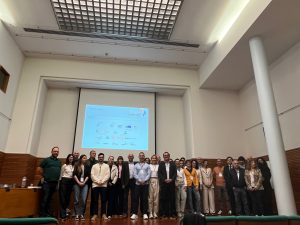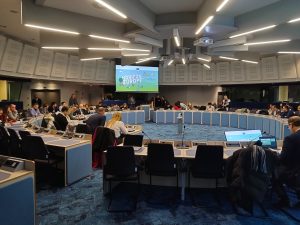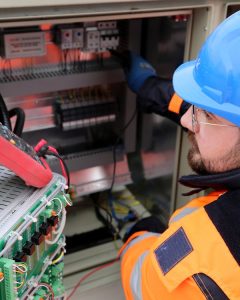Recognizing that cognitive education cannot touch students’ minds and hearts, teachers, and psychologists have recently introduced the term “Affective Education”. Affective Education aims at fostering an open, equivalent and non-judgmental environment through experiential learning.
The psychotherapist, Dr. Renato Palma, in his book “Easy Happiness: Growing together in an Affective Democracy” proposes a radical teaching method based on happiness. He suggests that if we behave well in children, the whole world will become better. The children’s happiness and wellbeing promote our own happiness too. Dr Palma concludes: “Growing together, children and adults, in an emotional democracy and building together a culture of happiness, can become a reality. This is perhaps the only way to escape from the conflict impasse”.
The DREAM project (Development and Run-test of an Educational Affective Model) represents a vision: to make schools a place of “affective education”; a place where children can express themselves without the fear of rejection, they can actively participate and create, their preferences and priorities are respected and they are treated equally, as it should be in an emotional democracy.
Educational institutes and other bodies from Italy, Greece, France and Spain, based on Dr. Palma’s perspective, will develop an innovative educational model of affective education, which aims at promoting students’ wellbeing and happiness, inside and outside the school. This will be followed by the pilot implementation of the educational model in primary schools of Rethymnon. A user’s guide will also be developed available to all interested teachers and educational bodies. Educational products, related articles and electronic materials of the project will be freely available through an Open Educational Resource platform (OER platform), which was presented by Mr. Androulakis.
In 14th-15th of November 2016, the first transnational meeting of all partners took place in University of Florence, Dept of “Education Sciences and Psychology” (SCIFOPSI), where the tasks and work plan of the project was defined in detail. The project will last three years and is funded by Erasmus+. Greece was represented by the Director of the European Center in Training for Employment (ECTE), Mr. Konstantinos Androulakis, in collaboration with the Head of the Laboratory of InterdisciplinaryApproaches for the Enhancement of Quality of Life (Quality of Life Lab), Ms. Argyroula Kalaitzaki, Assistant Professor of Clinical Psychology at TEI of Crete.


